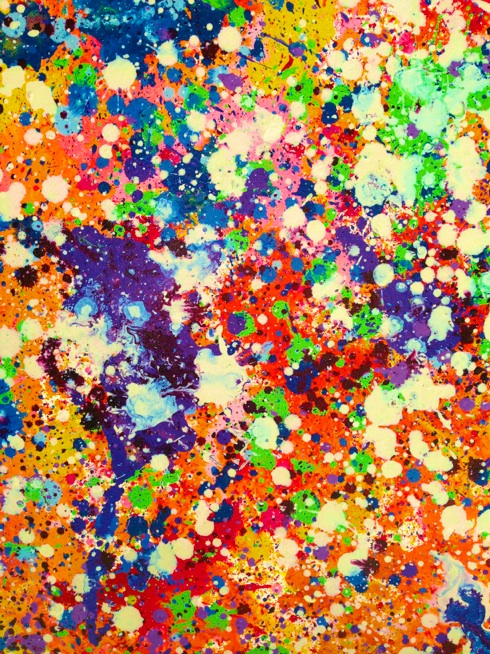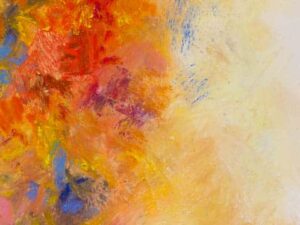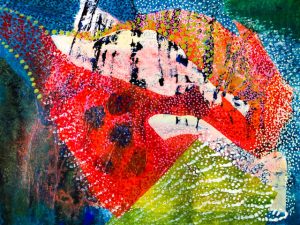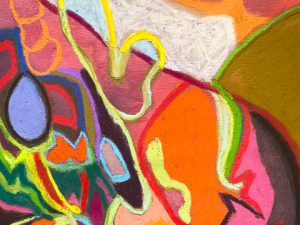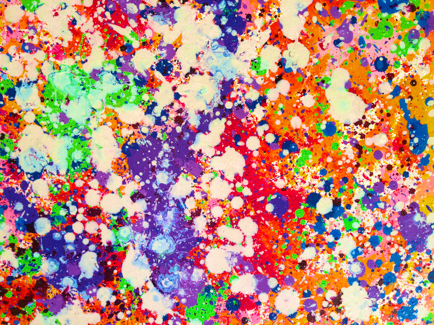
Toward a “Both/And” World
Sometimes we get so fused up
over something being either/or
when it can easily be both/and.
Our son couldn’t decide between
Political Science or Engineering
so he’s double majoring.
Whatever he does in his future
he’ll benefit from what he learns in each.
Churches struggle
with a clash of concepts regarding what they are about.
Some members are there to take care of themselves
while others are inspired by what can be done for the world.
Does it have to be one or the other?
Can’t we embrace letting it be both
even if we relate individually
more to one aspect than the other?
Can’t we support more inclusivity
even where we don’t personally need it?
For generations, scientists argued
whether light was a particle or a wave.
Eventually, Neils Bohr settled the dispute by saying it was both.
Radically, he called them “complementary facets” of a single idea.
Einstein said you can’t solve a problem on the same level as the problem.
No wonder he wasn’t stuck in restricted conceptions
and so found the speed of light a constant.
Carl Jung came along and coined the concept “syncronicity:”
what? More than one thing can be going on at a time?
I consider all this enlightened thinking, pun intended.
Jesus’ second commandment
is “Love your neighbor as yourself.”
That’s a classic both/and statement,
revolutionarily post-modern before its time.
If you focus more on one part of that commandment than the other
you have an imbalance that translates
as ingratitude, selfishness, haughtiness, self-deprecation, or dishonor,
and those one-sided approaches all equal strife, discord and unhappiness.
Stephen Covey asserted that
on a business board of directors
you don’t want any two people who agree
for then there would be redundancy.
The words he used were “paradigm shift” and “synergy:”
the new sum is greater than the old parts
yielding the special surplus that spells success.
We need all viewpoints,
and this doesn’t mean contention
if there is a reciprocal recognition
that each one’s genuine needs are valid
along with a commitment to work together
expertly and fairly maneuvering past conflict to creativity instead.
The Talmud tells the story
of a conversation between God and Abraham:
God: If it wasn’t for me you wouldn’t exist.
Abraham: If it wasn’t for me you wouldn’t be known.
Here is the epitome of mutual, coinciding necessity,
regardless of differing perspectives.
So even though there are trade offs in this world
(meaning I will not eat every dessert tonight)
there are not as many limitations as people surmise.
I can be a Christian Science Practitioner
and an artist, photographer, poet, cook.
Unlike most women who quit their job to homeschool
I found a way to do both.
Narrow preconceptions of the past
do not have to dictate and influence the future.
A diversified financial portfolio is recommended as wise.
A mixture of clean energy sources may be best.
A combination of governmental programs
pleasing divergent ideologies is possible,
since by definition a democracy is essentially based
on working out both/and solutions.
Have we forgotten this?
(When we think either/or – compromise and keeping score–
we undermine everything and all become losers.)
But often both/and outlooks discover a third way around an impasse
that would otherwise thwart or disenfranchise both sides.
So then, when we must make choices
(like minimizing consumption or waste)
it will be easier
because we are surrounded
by so many abundant possibilities,
while we feel supported, accommodated, respected and heard.
We will not fight so tenaciously for this or that detail
because we will be so satisfied already.
We’ll all be wearing our own crown
and rejoicing in everyone else sporting theirs as well.
by Polly Castor
11/4/13
